The CT4EDU project team includes faculty and graduate students from Michigan State University, administrators and curriculum staff from Oakland Schools, and researchers from American Institutes for Research.
Faculty
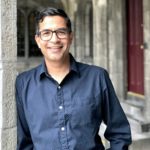
Dr. Aman Yadav (PI). Aman Yadav is a Professor and Director of Masters of Arts in Educational Technology at Michigan State University. His research focuses on computing education research in K-12 classrooms. He has been a PI/Co-PI on several National Science Foundation (NSF) funded projects related to preparing teachers to embed computational thinking and computer science in their teaching. His work has been published in a number of leading journals, including ACM Transactions on Computing Education, Journal of Research in Science Teaching, Journal of Engineering Education, and Communications of the ACM. He is the teacher education representative on the CSTA board and chairs the CSTA Assessment Taskforce.
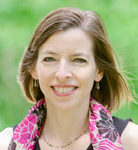
Dr. Christina Schwarz (Co-PI). Christina Schwarz is an associate professor of teacher education. Her research centers on teaching and learning science. She specifically focuses on inquiry-oriented, modeling-centered constructivist learning environments from preschool through college. Her research involves helping students and teachers develop an understanding of scientific practices such as scientific modeling and helping them learn how to productively engage in those practices. She is also conducting research with beginning teachers around noticing and responding to open up spaces for students’ scientific sense-making. Other interests include teacher development, educational technology, science teaching and learning in urban schools, and social/cultural practices in the classroom.
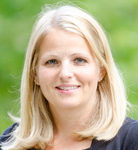
Dr. Emily Bouck (Co-PI). Emily Bouck is a professor of special education. Her research focuses focuses on two lines of research relative to students with intellectual disability and autism spectrum disorder: assistive technology and the relationship between inschool services and curriculum (e.g., functional curriculum) and post-school outcomes. Within her work on assistive technology, she explores technology to support access and achievement of students with intellectual disability and autism spectrum disorders relative to daily living skills and academics (e.g., mathematics). Her work has been supported by the U.S. Department of Education’s Office of Special Education Programs and the Spencer Foundation.
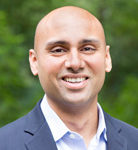
Dr. Niral Shah (Co-PI). Niral Shah’s research focuses on equity and implicit bias in STEM education. Although mathematics is often seen as “neutral” and “race-free,” Shah’s research shows that math classrooms are highly racialized spaces. Through classroom observations and student interviews, he studies how racial narratives (e.g., “Asians are good at math”) affect classroom interaction and serve to position students as more or less capable of learning math. Shah also studies how perceptions of status affect student learning in elementary computer science. Currently, he is developing a web-based classroom observation tool to help STEM teachers reflect upon implicit bias and improve their practice toward the goal of more equitable opportunities to learn.
Post-Docs
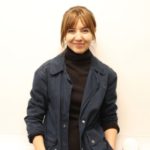
Dr. Ceren Ocak. Ceren Ocak is a postdoctoral researcher in the Counseling, Educational Psychology, and Special Education Department (CEPSE) at Michigan State University. Her research concentrates on analyzing learners’ embodied interaction with technology through multimodal perspectives (e.g., speech, gaze, gesture). She specifically explores how young children’s computational thinking (CT) emerges as an embodied, multimodal, and a shared cultural phenomenon during collaborative robotics activity.
Current Graduate Students

Eping Hung. Eping Hung is a former computer programmer who recently finished his master’s in educational technology through Michigan State University, Eping wears many part-time professional hats: as a K-8 computer science instructor, undergraduate CS instructor, and researcher on two NSF-funded computational thinking projects. He is keenly interested in working with elementary teachers and students to explore how unplugged computational thinking can be integrated into core curriculum. He lives with his physician wife, teenage daughter, and demanding feline in Ashland, OR, where he enjoys cooking, running, and reading and watching sci-fi/fantasy.
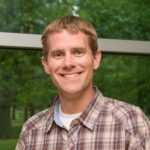
Zac Opps. Zac Opps is a doctoral student in MSU’s Educational Psychology and Educational Technology program. Lorem ipsum dolor sit amet, consectetur adipiscing elit. Nulla suscipit efficitur risus vitae aliquam. Donec dapibus odio vel mauris vehicula condimentum et a risus. In a mauris ut ante molestie dignissim a tincidunt risus. Suspendisse ultricies quis justo sed dapibus. Quisque consectetur molestie quam, in maximus urna. Nulla mattis efficitur massa, a suscipit massa volutpat sed. Sed nec est nisl. Duis urna leo, placerat ut dapibus ac, commodo eu nisi. In in neque nec lectus pellentesque consequat. In vestibulum lectus et libero gravida, ut mollis enim efficitur. Maecenas blandit risus velit, at cursus quam aliquam quis. Ut commodo cursus condimentum. Phasellus in dictum mauris.
Former Graduate Students
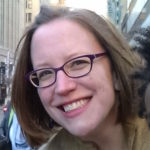
Katie Rich. Katie is a doctoral student in Educational Psychology and Educational Technology program. She started her PhD after ten years as a curriculum developer for Everyday Mathematics at the University of Chicago. She is interested broadly in the use of technology in elementary mathematics education. From the student perspective, she is interested in exploring how dynamic representations and manipulatives can support conceptual development, and how integration of computational thinking concepts into mathematics curricula can promote readiness for computer science education in later grades. From the teacher perspective, she is interested in exploring how digital delivery of curriculum materials can support teachers in making productive adaptations for their particular contexts.
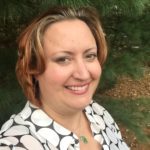
Rachel Larimore. Rachel is a doctoral student in curriculum, instruction, and teacher education. She started her PhD after 15 years as Director of Education at Chippewa Nature Center in Midland, MI and the founding director of the Center’s nature-based preschool. Her research focuses on elementary science education. With extensive experience in the non-formal education world she believes in connecting formal and non-formal educators to support children’s experiences with real-world phenomenon. Rachel is particularly interested in how nature-based early childhood education interacts with science teaching and learning. She earned previous degrees at Colorado State University and Central Michigan University.
School Partners
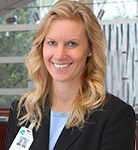
Dr. Heidi Kattula (Senior Personnel). Heidi Kattula is the Executive Director of District and School Services at Oakland Intermediate School District (Oakland Schools). Oakland Schools provides services to 28 local educational agencies and 26 public school academies servicing over 180,000 students in Oakland County. Dr. Kattula leads the academic achievement and social emotional learning of the PreK-12 students in Oakland County. Her leadership promotes, facilitates and fosters innovative instructional practices with the superintendents and assistant superintendents in one of the largest counties in Michigan. Prior to her position at Oakland Schools, Dr. Kattula served as a district Director of Curriculum and Instruction; high school, middle school and elementary principal; and mathematics and computer science teacher in Ohio and Michigan. As a first generation college graduate, Dr. Kattula’s career has been devoted to improving public education and educational opportunities for all students. Throughout her roles in public education, she has led increased student achievement and expanded opportunities for all students in the communities she has served. Dr. Kattula has served on numerous statewide boards and committees focusing on PreK-12 public education, educational innovation and reform, and computer science and STEM education. Her pedagogical and disciplinary expertise includes: International Baccalaureate programs (PYP, MYP, DP), educational leadership and policy studies, and educational administration, data and assessment, STEM education, FIRST robotics curriculum integration, math and computer science instruction, and career technical education – agricultural science. Dr. Kattula has presented at numerous national, state and local conferences on a wide variety of topics including: International Baccalaureate programs, Harvard’s PZ Cultures of Thinking, New Pedagogies for Deeper Learning, and STEM and computer science education. She has successfully written and received numerous national and state grants to promote and support public education in the areas of PreK-12 educational reform and innovation. She holds a doctorate degree in Educational Leadership and Policy Studies from Wayne State University, with a cognate in Educational Evaluation and Research; a master’s degree in Educational Administration from Northern Michigan University and a bachelor’s degree in mathematics and computer science from the University of Michigan. Dr. Kattula also serves as the Vice President of the Michigan Computer Science Teachers Association and is the Treasurer of International Baccalaureate Schools of Michigan.
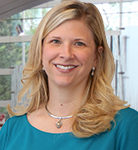
Dr. Dana Gosen. Dr. Gosen is a Mathematics Education Consultant at Oakland Schools. She entered the field of education as a middle school teacher, teaching children mathematics in the Great Lakes Bay Region. While Dana has a passion for working directly with children, she left her classroom to attend graduate school at the University of Michigan as she wanted to become a more effective practitioner. At the University, she worked to deepen her understanding of mathematics teaching and learning. These experiences prompted her to also study productive educator professional learning. Dana currently serves as a mathematics education consultant at Oakland Schools where she works with teachers and administrators as they strive to enhance their existing programs and systems to meet the varied needs of their children. While much of this work focuses on understanding mathematics and mathematical progressions so that teachers are better equipped to support a range of learners, the ultimate goal is to use this knowledge to refine our mathematics learning environments so that we most effectively support each and every child in coming to see themself as someone prepared to and capable of using mathematics to improve social, economic, and environmental conditions.
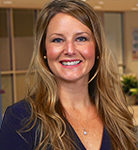
Jessica Ashley. Jessica is a science education consultant at Oakland Schools. For ten years, she taught high school students conceptual physics, forensic science, and biology before serving as a K-12 Curriculum and Instruction Specialist in a large suburban school district. Her work at Oakland Schools aims to equip teachers and administrators with the knowledge, skills, and tools needed to achieve the vision of 3-dimensional teaching and learning written in the NRC Framework. From the student perspective, she is committed to ensuring that all students have opportunities to wonder, observe, and figure out phenomena/solve problems relevant to their world. To achieve this, she advocates for all students to engage in investigations, communicate through productive academic talk, and use the crosscutting concepts to serve as the lens through which they observe the world around them. From the teacher perspective, she helps build understanding around using scientific evidence to serve as the main vehicle for discovery learning. She helps teachers rethink instructional design so that learning is “designed to discover” opposed to “done to confirm.” When working with administrators, she prioritizes systems thinking to build coherence vertically in the K-12 curriculum, as well as in all district initiatives to maximize transparency and clarity of purpose between teachers, administrators, and central office staff. She believes computational thinking is a powerful mechanism to yield student learning gains in science and mathematics and is thrilled to be a part of the CT4EDU grant team.
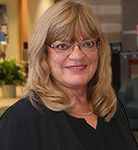
Laura Cummings. Laura is a Digital Learning Consultant at Oakland Schools. She supports educators in the 28 local educational agencies and 26 public school academies in Oakland County with professional learning on how best to use educational technology tools to support and enhance teaching and learning. Laura is the Director of REMC 17/Oakland Schools and serves as the Member-at-Large on the Executive Board for the REMC Association of Michigan. Prior to her position at Oakland Schools, Laura served as a Technology Resource Teacher in a suburban school district. In that role she supported educators with job-embedded, professional learning on the integration of technology throughout the curriculum. Laura’s classroom teaching experience includes first grade, fifth grade, K-5 art and sixth-eighth grade science, math and technology. Laura has served on board for the Michigan Association for Computer Users in Learning (MACUL) for the past nine years.
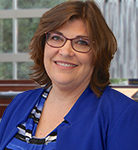
Gerri Devine. Gerri is a mathematics education consultant at Oakland Schools. For seventeen years prior to moving to Oakland Schools, she taught mathematics, ranging from sixth grade content to Advanced Placement Calculus, in a suburban school district. During her tenure there, Geraldine also served as Mathematics Specialist for a middle school, and the 6-12 Mathematics Curriculum Coordinator. Geraldine currently works to support purposeful and engaging K-12 mathematics curriculum, instruction, and assessment that has potential to support students and teachers in developing positive dispositions toward mathematics and themselves as learners. As such, students see that they can use mathematics to make sense of the world around them and ultimately contribute to a democratic society.
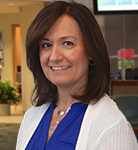
Vinos Kassab. Vinos is a Digital Learning Consultant at Oakland Schools. She supports the 28 local educational agencies and 26 public school academies in Oakland County with the latest educational technology tools, and also supports districts with computer science and robotics. Prior to her position at Oakland Schools, Vinos served as an elementary and middle school teacher in a suburban school district. Her tenure with the school district consisted of teaching all subjects at the elementary level and math, language arts and computer science at the middle school level. In addition, Vinos served as the district’s math content area leader. She is currently involved in the statewide development and adoption of the computer science standards. Vinos also serves on the steering committee for the Michigan Chapter of the Computer Science Teachers Association and is the Communications Officer for the Michigan Association for Computer Users in Learning Computer Science Special Interest Group.
Evaluation and Research Partners
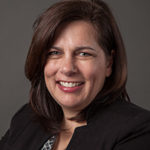
Dr. Julie Kochanek (Senior Personnel). Dr. Kochanek is a managing director at the American Institutes for Research and Director of the Regional Educational Laboratory (REL) Midwest. Dr. Kochanek has nearly 20 years of experience in research and evaluation of school reform efforts, with a special focus on the social and organizational conditions surrounding schools and districts. Her current work explores methods to bridge research and practice in education. As part of her work on research-practice partnerships, Kochanek has developed AIR capacity to design and lead networked improvement communities (NICs). Under her leadership, teams work across several projects to serve as network hubs facilitating the NIC process and to bring measurement and analytic support.
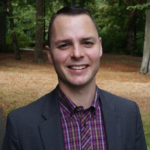
Dr. Joey Wilson (Senior Personnel). Joseph P. Wilson, PhD (“Joey”) is currently a Senior Education Consultant at the American Institutes for Research, where he focuses on ensuring all PK-12 students have access to equitable and rigorous computer science education. Joey has worn many hats including high school science teacher, bioengineer, researcher, and STEM education advocate. He is a proud graduate of many fine, public institutions from Kindergarten through PhD, including the University of Florida (Go Gators!), Arizona State University, University of California-San Francisco, and University of California-Berkeley.
